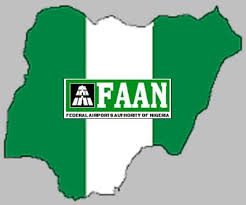The Federal Airport Authority of Nigeria (FAAN) has embarked on Public Private Partnership (PPP) to reduce financial burden on the Federal Government. The Minister of Aviation, Sen. Hadi Sirika, on Thursday in Abuja made this known at the Investment Forum of the maiden edition of FAAN National Aviation Conference (FNAC). The theme of the event is “Advancing the Frontiers of Possibilities for Safe, Secure and Profitable Air Transport”. Sirika, who was represented by Capt. Musa Nuhu, the Director-General, Nigerian Civil Aviation Authority (NCAA), said the move was to fast-tract advancement in the sector.
According to him, FAAN`s key initiative of partnership will focus on safety and security, infrastructural development, growing domestic airlines through new route development and designation of airports for improved performance and revenue creation. “Recently, the Federal Capital Territory offered 12,000 hectares of land for aviation development for Abuja airport. This will give good opportunity for investment. There are opportunities in other airports like the Lagos airport. The aviation roadmap of the Federal Government being implemented under the leadership of Minister of Aviation, Sen. Hadi Sirika, who is unavoidable absent today, gives opportunity for investment into aviation industry. Apart from FAAN, other agencies, NCAT, NIMET, AIB NCAA under the ministry also provide excellent opportunity for the investment in the airports. The aviation sector summons opportunity for investment, “ he said.
Sirika said that the plan of government to make regulation easier to invest in all areas of the roadmap was to encourage the investors. He said efforts of the Federal Government to find solution to the challenges of COVID-19 pandemic had created fantastic opportunities in the entire aviation eco-system. Mr Sadiku Rafindadi, FAAN Director, Commercial and Business Development, said all the public, government functionaries and aviation stakeholders present were essential to the success of the forum. Rafindadi said Nigerian aviation sector was strategically positioned to take advantage of the expected growth in the Africa market due to its proximity to Europe, Middle East and the rest of Africa. The director said that most of West and Central Africa were within a four-hour flying time from Nigeria with no clear dominating airline present. “Nigerian aviation market is huge, yet untapped, we plan to fully tap Nigeria’s potential and fully harness the available opportunities within the 21 airports managed by FAAN.
“In 2020, the domestic and international passenger traffic stood at 9, 358, 186 and increased to 15, 885, 955 in 2021 representing, a growth of 14 per cent. Analysts have forecast that Nigeria’s passenger traffic will exceed that of the Global Aviation Sector as such aviation remains pivotal to the socio-economic growth of Nigeria. Nigeria’s passenger traffic is expected to grow at 7 per cent over the next 10 years, while the global industry remains at 5.3 per cent, “ he said. He said that recent aviator study for Nigeria by International Air Transportation Association (IATA) in June 2020 showcased significant contribution of aviation to the national economy by providing 241,000 jobs. Rafindadi said that FAAN had realised that in an agrarian economy, cargo transportation was extremely critical for import-export revenues both locally and internationally in Nigeria. We are therefore working on a long-term cargo development strategy to match the growing needs of investors and e-commerce traffic through development of 13 designated Cargo Airports in Nigeria for wet and dry cargo and Agro-Allied Terminals. An airport city model adopted by the government created opportunity for investors to define their place within the airport environment. We have unique offerings for investors in agro business, specialised warehouses, leisure and tourism venues, research and education services, Maintenance, Repair and Overhaul Leasing company as well as health and wellness centres, “ he said.

